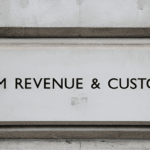
Tax Deductible For Content Creators
Social media has been a blessing for most people. It helps us stay connected with our friends and family.
But, for some people, like social media influencers in the UK, social media platforms are their source of income, their bread and butter. We will talk more about how to earn more from these platforms and reduce your expenses. By working on your tax liabilities as a social media influencer, you can optimise the financial health of your work.
A social media influencer is a person who creates influencing and engaging content on social media that is aligned with their followers. Such individuals wield a lot of power or influence on their audiences, impacting their purchase decisions and behaviours. Such influencers are known to share their personal anecdotes and stories to recommend products and services to their followers. Consequently, brands collaborate with them to promote their brands, products, and services.
What Expenses Can Social Media Influencers in the UK Claim?
As social media influencers grow their businesses, they can claim different kinds of business expenses to reduce their taxable income.
Here’s a rundown of all kinds of expenses that social media influencers in the UK can claim.
- Marketing and Advertising Expenses
Social media influencers must bear a significant amount of marketing and advertising expenses. These expenses cover the costs of sponsored content and brand promotions.
Under sponsored posts, claimable expenses are related to –
- Tools, including software used for editing
- Photography equipment
- Cost of props
- Location rentals
Such costs are related to boosting your brand’s image and marketing goals. Advertising fees include money spent on social media ads, collab costs incurred by marketing agencies, etc. Promotional costs like the cost of attending events, marketing campaigns, and hosting giveaways are also tax-deductible for influencers.
Ensure that you keep a close watch and track these expenses for tax deductions.
- Travel Expenses
Influencers need to travel for business purposes. Expenses incurred related to your travel, like attending events, trips, or collaborations related to your work, are claimable. Expenses that can be claimed related to trains, flights, cars, hotel stays, Airbnb lets, lodging costs, etc.
Other expenses related to your business-associated trips, such as restaurant food expenses, grocery purchases, room service charges, etc., can also be claimed.
Ensure that you understand the guidelines related to your work-related travel expenses so that you can claim tax deductions.
- Equipment and Technology Expenses
As a social media influencer, you are allowed to claim expenses related to –
- State-of-art camera equipment
- High-end editing software like Final Cut Pro or Adobe Creative Suite
- Computer, monitors, graphic tablets
- Lenses
- Tripods
- Lighting equipment
- Microphones
- Software license, subscription fees and maintenance costs
In addition, expenses related to other technological assets that are directly a part of your content creation work are clubbed as allowable expenses.
- Education & Training Expenses
Social media influencers need to invest in continued learning programs and access different resources to grow and succeed. All such costs and investments are tax deductible.
These costs include –
- Training courses
- Educational materials
- Workshops on Instagram
- SEO programs
Expenses related to the latest tools, attending industry conferences, premium memberships, and software analytics purchases that allow them to stay on top of their industrial niche can also be claimed.
- Office and Workspace Expenses
If you are running an office, you need to bear certain expenses, like utilities, internet bills, maintenance costs, etc. All these expenses can be claimed for tax deductions by social media influencers, especially if you are working from home.
A portion of the rent can also be claimed—the portion equivalent to the size of the office space inside their home vis-a-vis the total area of the home. A certain part of the mortgage interest, property taxes, and home insurance can also be claimed in lieu of the workspace.
- Professional Services Expenses
Service fees paid to professionals such as accountants, lawyers, consultants, and others are allowable expenses if you are working as a social media influencer.
Legal fees are often required for intellectual property rights, compliance and regulatory issues, contracts, negotiations, etc. Similarly, you might need to hire accountants for taxation purposes, tax returns, financial management, and so on.
Consulting services are required for strategic planning, research and marketing analysis, brand development, etc.

- Supplies and Materials Expenses
Expenses incurred to run your office also fall under allowable expenses. Social media influencers can claim any such expense related to promotional merchandise, stationery, branded materials, etc.
These supplies can include tech devices, personalised items, business cards, brochures, banners, etc. that help grow your business.
- Entertainment and Networking Expenses
Expenses related to networking, business meetings, collaborations, and industry events that help promote your business are tax deductible. You need to attend such events to grow your brand and market reach. Expenses related to client entertainment, like food, lodging, etc., are part of taxable income. Similarly, transportation costs and entry fees are also part of deductible expenses.
- Health and Wellness Expenses
As a social media influencer, if you have invested in health and wellness programs like gym memberships, subscription fees to wellness services, or consultations with health professionals, you can claim the expenses as tax deductions.
- Miscellaneous Expenses
Apart from the above-listed expenses, what can influencers claim on tax? Certain miscellaneous expenses that do not fall under the above-mentioned categories can also be claimed by social media influencers for tax deductions. These involve costs like buying props for photoshoots or purchasing high-end software for video editing. Other unexpected expenses include repairs and maintenance costs, emergency expenses, etc.
What Cannot be Claimed by Social Media Influencers?
Certain expenses cannot be claimed by influencers for tax deductions. These include non-business-related costs, fines related to penalties and legal violations, and personal expenses like clothes, personal vacations, or household items. Similarly, expenses related to home utility bills and personal vehicle expenses are not claimable.
- How many years can HMRC go back for self-assessment?

- How does HMRC know I have rental income?

- What do you do if you are new to completing self-assessment tax returns?

Things to do to Track Your Expenses
- Start by maintaining a record of your expenses.
- Ensure accuracy.
- Use digital tools, apps or state-of-art accounting software.
If you find it challenging to keep track of your expenses related to your work as a social media influencer, it is best to hire the services of a professionally competent accountant.
How do Influencers Pay Taxes in the UK?
As part of your tax obligations, you are required to complete the self-assessment each year. You must declare your total income and deductions per HMRC guidelines. There is also applicable VAT, and you need to know the VAT thresholds for registration. To add to all this, you need to maintain accurate records of all your expenses in the tax year to claim deductions. So, this is how influencers pay taxes in the UK.
It is best to consult with seasoned accountants and seek their help navigating this landscape. Contact Cangaf Accountants to assist you with understanding claimable expenses, tax implications, and other aspects of your social media income.





